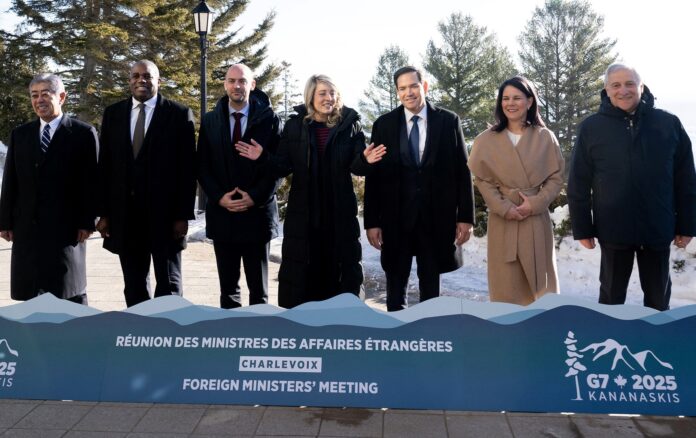Finance ministers and central bank governors from the Group of Seven (G7) nations pledged on Thursday to tackle “excessive imbalances” in the global economy and signalled readiness to escalate sanctions on Russia amid its ongoing war in Ukraine.
Meeting in the Canadian Rocky Mountains, G7 officials emphasized the need for a unified approach to counter “non-market policies and practices” that undermine international economic security, a reference widely understood to target China’s state subsidies and export-driven economic model, although China was not named explicitly.
The final communique highlighted the importance of analyzing market concentration and strengthening supply chain resilience. It stressed a coordinated effort to ensure a level playing field and address harm caused by opaque and unfair economic practices.
European Commission Executive Vice President Valdis Dombrovskis confirmed discussions on possible further sanctions against Russia, including a proposal to lower the G7-led $60-per-barrel price cap on Russian oil, which is currently trading below that level. The communique condemned Russia’s “continued brutal war” and warned of exploring all options, including enhanced sanctions, should ceasefire efforts fail.
The statement also reaffirmed that Russian sovereign assets held within G7 jurisdictions would remain frozen until Moscow ends the conflict and compensates Ukraine for damages caused.
On economic rebalancing, U.S. Treasury Secretary Scott Bessent is expected to push G7 allies to address global imbalances and protect domestic industries from what the U.S. describes as China’s unfair trade practices.
Additionally, the G7 raised concerns over the surge in low-value international “de minimis” shipments—packages valued under $800 exempt from duties, that strain customs systems and facilitate illicit activities such as drug smuggling. Chinese e-commerce platforms like Shein and Temu were cited as key users of this exemption.
The communique signals growing global coordination on economic security and sanctions enforcement amid complex geopolitical tensions.




